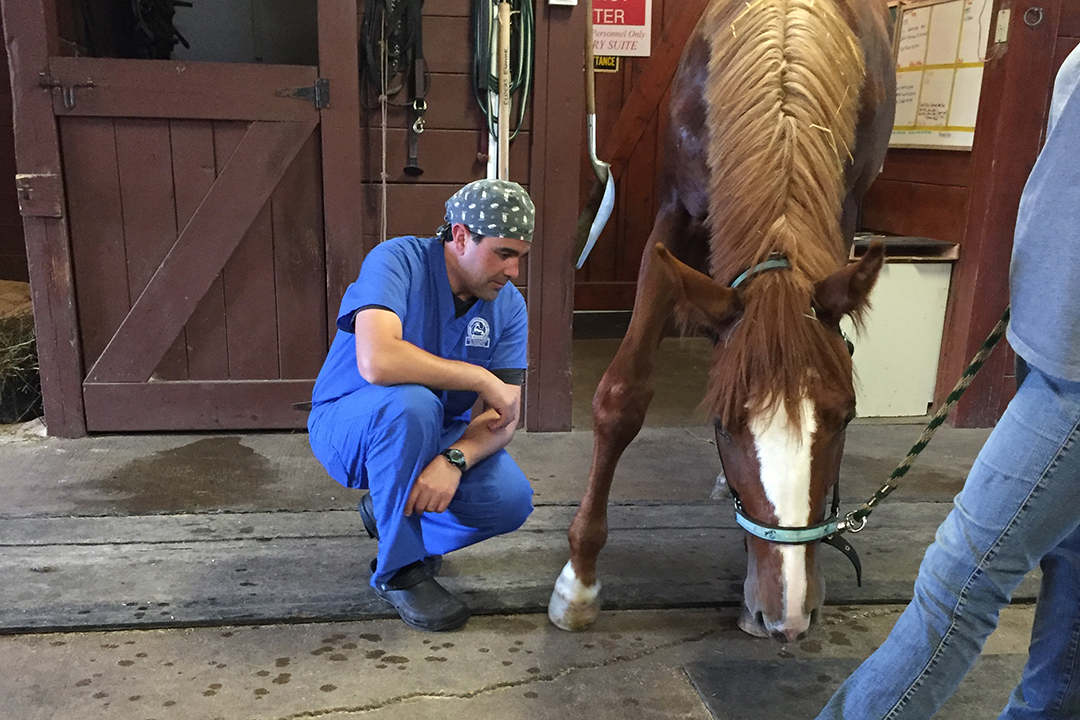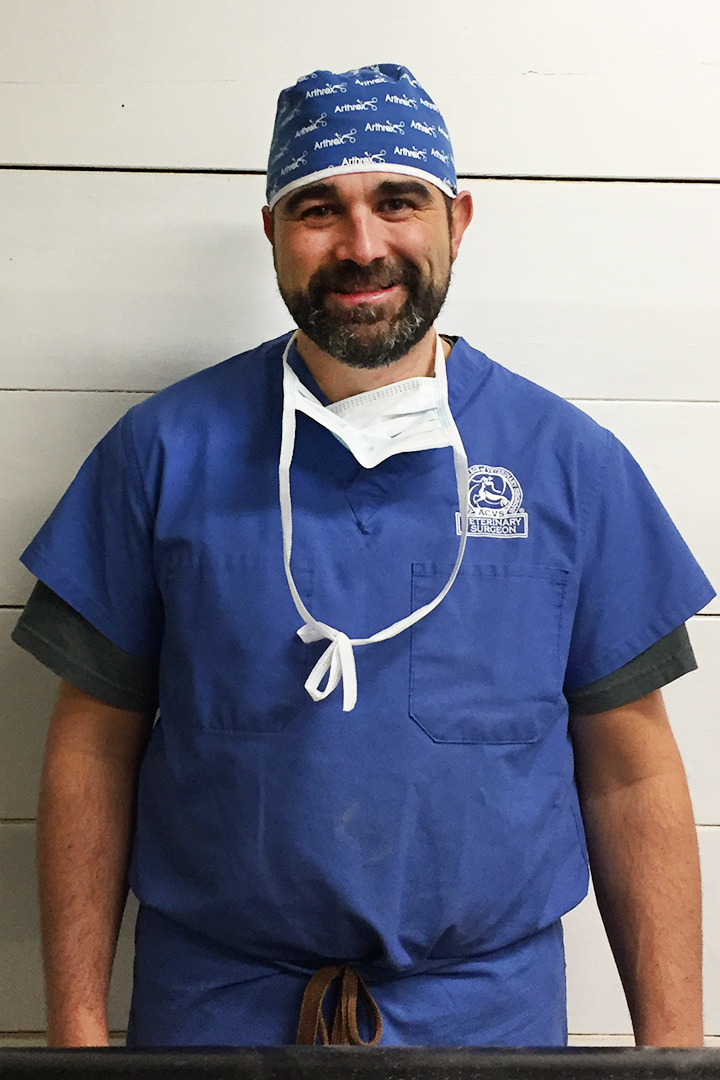
Vet school prepared equine surgeon for his life’s work
There’s never been a time in Dr. Chris Bell’s life that he wasn’t surrounded by horses.
By HenryTye Glazebrook
In his youth on his family’s farm near Airdrie, Alta., where his parents stabled horses and taught dressage, Bell followed the local veterinarian around whenever he made a field call at the stables. Those interactions sparked a curiosity that only swelled with the passing years, carrying forward into time volunteering with an equine practice in Calgary during high school and on into his current role as practice owner of Elders Equine Veterinary Services in Winnipeg, Man.
But to hear Bell describe the great, gentle beasts aloud, it’s clear his fascination with them goes well beyond that of your average veterinarian.
“It’s amazing to see such a large body being supported by what look like four pretty spindly legs, and yet they are able to outrun a person and keep up with cars,” he says, trying to put words to the way horses don’t just earn attention but command it.
“It’s wild. They’re very courageous, but they’re silent about it. They don’t come roaring over to you like a lion, and yet, they’re very powerful.”
Today Bell is a highly respected, board-certified equine surgeon working out of Winnipeg — the first person to fill such a position full time in the history of the province. Bell completed his Doctor of Veterinary Medicine degree at the Western College of Veterinary Medicine (WCVM) in 2006 and then finished a one-year clinical internship at a busy equine referral clinic in Arizona. After that experience, he returned to WCVM for a combined master’s degree-large animal surgical residency. In 2012, Bell became owner of Elders Equine after its founder, Dr. Norm Elder, retired.
The decision to specialize in surgery was made out of the immediacy of the process, Bell says, explaining that he enjoys watching his decisive, concrete actions directly result in fuller animal and human happiness.
“I always liked the way you could see results to procedures right away, and that you were able to return sore horses back to health — just the expression on people’s faces when they saw their horse walk out of surgery and know that they were going to be able to get their friend back and get their horse back.”
As a veterinary student, Bell had the chance to meet students from other North American veterinary schools while completing externships in Canada and the United States. During his one-year internship at Arizona Equine Medical and Surgical Center, he met his clinical mentor and further developed his clinical judgment. He also performed an MRI (magnetic resonance imaging) study on equine feet and went on to publish the study’s results in the Journal of the American Veterinary Medical Association (JAVMA).
All these experiences, he says, opened his eyes to just how deep the well of resources at the WCVM ran compared to its contemporaries in other veterinary schools.
“To my surprise, they were at times under-prepared for the hands-on experience,” Bell says. “They had never done a rectal palpation of a horse, they had never tubed a horse — a lot of things that WCVM provides to our students just aren’t taught as well to veterinary students around North America, and it’s a major strength that we’re actually able to give the hands-on training that the school does.”
Experiences like these are precisely why Bell has maintained such a strong connection to his alma mater even years after he entered into his own career. His involvement with the college includes sitting on the WCVM Advisory Council as a representative of the Manitoba Veterinary Medical Association, collaborating with colleagues at the U of S on ongoing equine health research projects and even welcoming upper-year students and residents into his practice to learn first-hand from his techniques.
“I think the WCVM does a really great job, and I want to participate in helping to keep that really positive experience and the outstanding education going in the right direction for the students,” says Bell.
“WCVM are the ones who trained me, and I’ve always felt the need to give back. Whether through my time or effort or through our donation dollars, I always want to try to give back to the college and keep it as strong and bright as it’s always been going forward.”
HenryTye Glazebrook is a freelance writer based in Vancouver, B.C.